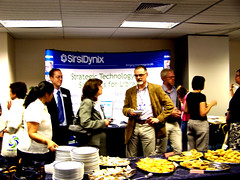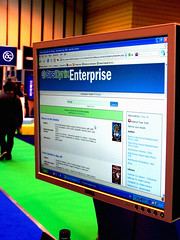The press release for Horizon 7.4.2 has just gone online.
Both Talin Bingham (Chief Technology Officer) and Gary Rautenstrauch (Chief Executive Officer) use the word “worldwide” in the press release:
This new version adds functionality requested by our customers worldwide and offers great benefits to libraries and patrons alike…
Providing the features librarians need and delivering the best user experience worldwide are SirsiDynix’s highest priorities.
However, the reality is that Horizon 7.4.2 is a North American only release. Much as I would love to be able to roll out some of those new features here at Huddersfield, and much as I would love to have all those really nasty security holes in HIP fixed, the bottom line is that I can’t — SirsiDynix’s definition of “worldwide” is a curiously US-centric one.
Horizon customers in the UK, France, Germany, Sweden, Belgium, Netherlands, etc, are not “qualifying customers”, despite paying their yearly maintenance.
SirsiDynix International made a decision a year or two ago that they would no longer provide regional variations of Horizon, and I can fully understand why. As a non-American customer, I might not be happy about it, but I can understand why. What I can’t understand (and frankly, it’s starting to really piss me off) is why the company continues to pretend in public that they are.
If anyone senior from the SirsiDynix US office would like to contact me today, then please do — I’m sure you’ll find my direct telephone number in your UK customer contacts database. Maybe there’s a perfectly good reason why most of your Horizon customers in Europe are no longer classified as being part of your “worldwide” customer base and I’d really love to hear it.

















